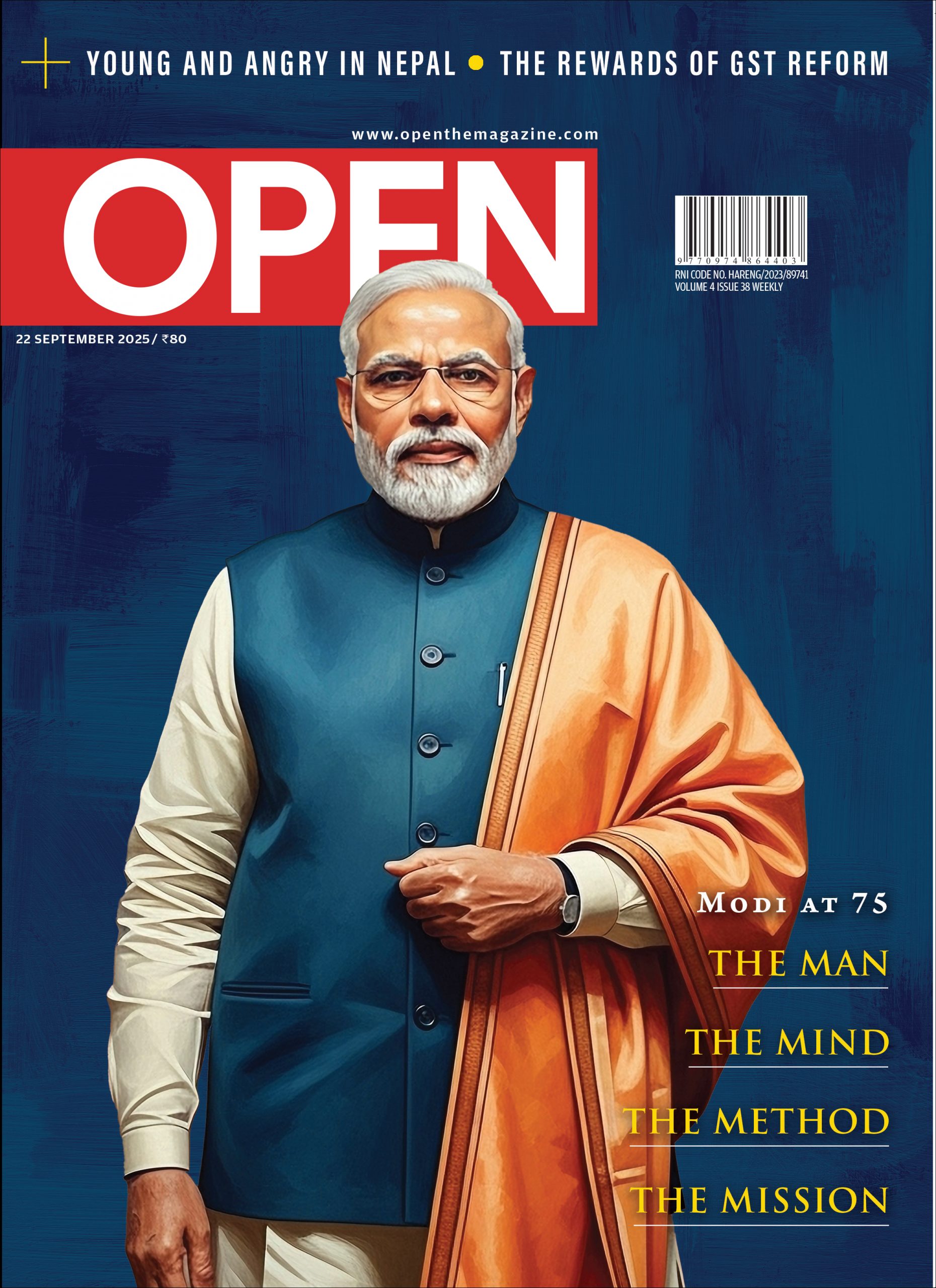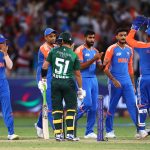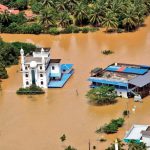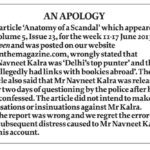THE LAST ROAR
Is it the end of the Abdullah dynasty?
/wp-content/uploads/2015/11/Lastroar1.jpg)
Is it the end of the Abdullah dynasty?
On Friday, 11 June 2010, 17-year old Tufail Ahmad Mattoo, playing cricket at the Gani Memorial Stadium in Srinagar, was killed by a teargas canister fired by Indian security forces at protestors. They were demonstrating against the ‘encounter’ deaths of three Kashmiri civilians from Rafiabad who had been dubbed Pakistani infiltrators by the Army and were alleged to have crossed over in the Machil sector of Kupwara district. At last official count, the turmoil that engulfed the state that year, part of a vicious cycle of violence between the armed forces and agitating civilians, took a toll of 110 lives and left 537 injured between May and September. An estimated 1,274 CRPF men and 2,747 police personnel were injured across the Valley during the period.
It was Kashmir’s worst year after 1989. When it spread across the Valley, the country’s youngest Chief Minister, Omar Abdullah, was away on a holiday. For four days, he was nowhere to be seen even as his state bled. One bureaucrat recalls that a helicopter did nearly nine sorties to ferry the Abdullah family to Ladakh. From there, Omar and family flew to Manali after the violence started in Srinagar. Most of Omar Abdullah’s own government remained clueless about his whereabouts. A full 96 hours after the beginning of that summer of discord, the state’s Chief Minister returned to its capital Srinagar, held a review meeting of top officials, directed the removal of the police commissioner, and then went right back to vacationing in a popular hill resort in Himachal Pradesh.
A disturbed Prime Minister Manmohan Singh is believed to have advised Omar Abdullah to resign as Chief Minister as a way to blunt the resurgence of an anti- India furore in the Valley. His father Farooq Abdullah, however, opposed the suggestion, and he stuck on. An anti-India group even created a special community page in 2011 called ‘We are all Tufail Ahmad Mattoo’. It didn’t get many followers, but the message hit home. Come 2014 and Tufail Ahmad Mattoo would return to haunt Omar.
Another issue that would torment Abdullah junior, it was clear, was the 9 February 2013 hanging of Afzal Guru in Delhi’s Tihar Jail, code-named Operation Three Star. Very few people knew of the impending execution for fear it would trigger widespread violence in the Valley; among those kept in the dark was Guru’s own family. A day before the scheduled hanging, the then Home Minister Sushil Kumar Shinde informed Omar Abdullah of the Centre’s decision. Although it would have had adverse reaction in the Valley, the UPA hoped to garner support elsewhere in the country through this move. Apparently unfazed by the news, Omar remained in Delhi, choosing to dine at an eatery in Khan Market with friends rather than rush back to put out the fire in his home state.
Before he took office in Srinagar, Omar’s popularity among Delhi’s jet-set had been growing steadily, aided by his social media presence in later years (he has 715,000 followers on Twitter and more than 7,000 tweets to date). In 1998, he had already cut his teeth in electoral politics as a Member of Parliament from Srinagar. Omar’s political credentials were sound, and he was seemingly invincible as a leader. At 29, the 1970-born had became the youngest junior minister, and then the youngest Union minister in 2001 when he became a Minister of State for Foreign Affairs in the Vajpayee Government; in 2002, he resigned from the post after the Gujarat riots, and later that year, took over as President of the National Conference (NC), the party founded by his grandfather Sheikh Abdullah, hailed in the Valley as ‘Sher-e-Kashmir’.
Omar had already taken a big leap forward in charting a definite political course for himself when he met Pakistani President Pervez Musharraf in Islamabad in 2006 despite the Centre’s disapproval. He returned home to a hero’s welcome after what was seen by many Kashmiris as a bold and historic attempt by a regular state politician to talk directly with the Pakistani regime to resolve the Kashmir issue peaceably. Before he moved to Srinagar lock, stock and barrel, Omar had won laurels in the eyes of one and all, most notably when he gave a stirring speech on being Indian in the Lok Sabha during the July 2008 trust vote over the Indo-US Nuclear Deal, even as he outlined the evolving socio-political aspirations of the Kashmiri youth and the state’s relations with the rest of the country.
At the end of 2008, when he contested Jammu & Kashmir’s Assembly polls, the state’s electorate accepted it sanguinely though he was virtually being foisted on them as Chief Minister by virtue of his illustrious lineage, being the grandson of Sheikh Abdullah, held in reverence by Kashmiris for speaking up for them in the days before Independence and after. But that hereditary sheen had already begun to fade, and Omar was becoming aware, as was a restive electorate, that the cosmopolitan outlook and political nobility that he took for granted could only take him thus far and no further if he were to prove incapable of effective governance.
Faced with the harsh realities of running a state, Omar found the political terrain harder to handle than he’d expected, and found himself a target of the local media as well as political detractors. The latter, especially in the People’s Democratic Party (PDP), missed few opportunities to taunt him about his half-English birth and moorings besides his inability to connect with ordinary Kashmiris. In one interview, Omar admitted that he considered himself as English as he was Kashmiri, and that the English relatives of his mother Mollie did play a role in his life. When his father Farooq Abdullah came back to Srinagar in the 70s, Omar recalled that despite all the turmoil in the state, the family would watch and enjoy sitcoms like Mind Your Language sent across by their English relatives.
In the 2008 Assembly elections in J&K, Omar was not the first, nor even the second or third, choice for Chief Minister after the NC won a big cache of seats and allied with the Congress to stake claim to the top post. “That election, the NC raked in votes at the hustings in the name of Farooq Abdullah; Omar is not seen as a people’s politician here, and was not in the picture frame as Chief Minister, but Kashmiris were made a fait accompli to the decision. People voted for three CM candidates in the last election: Farooq Abdullah, Mufti Mohammed Sayeed and Ghulam Nabi Azad. But after the votes were counted, a fourth person was made CM: Omar,” says a disgruntled NC politician.
Six years after that election and several weeks after the most devastating floods on record in the state—an event that showed up the worst in a government that all but abandoned its responsibilities of rescue, relief and rehabilitation—negative perceptions of Omar Abdullah persist and grow even as the NC’s governance rating hits rock bottom in the state. Ranked high on the list of issues that could result in the death of the Abdullah dynasty and the NC, many feel, are both the mishandling of the 2010 violence and the non-starter that the state government’s flood relief efforts proved to be, week after week, except in Srinagar’s posh downtown areas.
“Anti-incumbency against the NC is at the highest even in Kashmir, and, irrespective of whether the voter turnout is high or not, this election will see the NC getting a drubbing for its policies, or lack of them. The government did try to amend this later, but this is too little too late, and nothing can change the writing on the wall for the NC and the Abdullah family,” says an observer.
The recent floods, for instance, have left a marked impact on Kashmiris. In Srinagar, the ruling party’s office shows no sign of an election being contested; the name board hangs forlorn, the musty smell is overwhelming, there are no ticket seekers around, not even party leaders in confabulations, no flags, no NC posters, nothing. For Omar’s party, it is almost as if the die has long been cast. At the nearby Radio Kashmir building, damp furniture, weakened by flood waters, are piled one upon another in various states of disrepair. In parts of the capital not known for affluence, flood water is still in evidence in all its undrained glory, threatening disease.
“He may be Sheikh Abdullah’s grandson, but he has not worked at keeping his political spurs by getting his hands dirty,” maintains a PDP spokesman. “Sheikh Abdullah was a class apart. He was a magician who ruled the hearts of the people. His was the best attended funeral in this part of the world.” For the Sher-e-Kashmir, though, that was hard-won adulation, politically and personally. The man who in 1932 started Kashmir’s first political party, the Muslim Conference, and later transformed it to the more inclusive NC, spearheaded a popular agitation for the exit of the Dogra rulers on the lines of the Quit India movement against the British, and rooted for a plebiscite in Kashmir—after which Jawaharlal Nehru, who he considered a friend and likeminded traveller, took the Kashmir issue to the UN, and first unseated and then jailed the Sher-e-Kashmir. Sheikh Abdullah was the Prime Minister of J&K between 1948 and 1953, and later became Chief Minister of the state in 1975 and 1977.
Today, many feel that Sheikh Abdullah’s legacy alone can no longer help Omar take on the political odds. The ailing Farooq Abdullah can’t do much either except watch. For the so-called ‘First Family’ of J&K and the NC itself, this election could well be the final whimper. Most Kashmiris know well by now that the Abdullah scion— who became the state’s 11th and youngest Chief Minister—sorely lacks that instinctive political connect with the people that his father Farooq Abdullah, for all his faults, possessed. And that with him at the helm, the NC may never again be electable.
One analyst contends that calling the NC’s survival challenge an ‘uphill’ task would be “grossly understating” the fate that awaits the dynasty at the hustings. There is widespread speculation that for Omar, whose party has governed J&K almost without a break—it has been out of power for only brief stints—since the Indira Gandhi- Sheikh Abdullah accord of 1975, the election results could script a political epitaph.
“Omar never studied or even skinned his knees in Kashmir, never imbibed the smells and sensed the moods in the bylanes of Srinagar, Sopore, Anant Nag, Baramullah or Shopian. Never roamed the streets of Budgam or Pulwama. Even Ghulam Nabi Azad, who has often been criticised for being only a symbolic Kashmiri, was considered a choice for the CM’s post ahead of Omar,” says an NC leader, once seen as one of Omar’s point persons in the family political fiefdom of Ganderbal.
The roads of Srinagar today teem with popular discontent over the NC’s inability to get its act together. What rankles most is the virtual desertion by the state government during the recent floods. Omar himself was highly defensive when he argued that many officials were unable to attend offices that were themselves several feet in water, and that with communication down in several parts of the state, relief and rehab operations could begin properly only after the waters receded. What made his position weaker was the diligence shown by the politically savvy Prime Minister Narendra Modi, who promptly directed the Army to remote areas of the state for flood relief efforts.
Compounding Omar’s problems are some key factors in the ongoing Assembly polls that have come a full 25 years after Kashmiri Pandits first started fleeing the valley. Not least of the NC’s problems is the majority BJP Government at the Centre led by a proactive Prime Minister who has succeeded in ousting Congress regimes in states such as Maharashtra and Haryana.
The Modi Government has also been taking a tough line against secessionists who have been rushing to the Pakistan High Commission in Delhi for discussions. The Centre has stalled talks with Pakistan for hosting ‘Aazadi’ demanding Hurriyat leaders, and this has effectively also nixed Omar’s electoral promise—which he’d refused to view as ‘anti-India’—of facilitating talks between these leaders and New Delhi. The Centre remains clear that the Pakistan regime could either talk to marginalised separatists or India’s Government on matters related to Kashmir, but not both.
Then came the controversial debate over the return and rehabilitation of Kashmiri Pandits. A seemingly hush-hush meeting of leaders from the BJP’s satellite organisations and non-state players in J&K (that left Omar in the dark) on the issue set off much discussion over the BJP’s 1990 promise of resettling Kashmiri Pandits in the Valley and a package-in-the-making within a timeframe. Suddenly, a sleepy saffron party pushed to margins in the Jammu region awoke to become the spine of the BJP’s ‘Mission 44’: a victory target of seats that would give it a simple majority in J&K’s 87-seat Assembly. Says Avinash Khanna of the BJP, “The issue is not whether the BJP will actually hit the goal of 44 seats. That may still be a tall order. But the main issue is the act of curing the state BJP’s political sleep apnoea and going ahead full throttle. The BJP may get only 30-32 seats, but with independents and some friends, it will make up that number, and that in itself will be historic. There is new hope and excitement all over India over both the economic and social rejuvenation [of the country] with the arrival of Modi, and this is an opportunity for the people of Kashmir, beleaguered by violence and insurgency for years and then by ineffective governance, to participate prominently in the mainstream.”
Indeed, today, business as usual seems to be the street mood in Srinagar. No anti-India posters, no slogan-heavy festoons, and no fury-filled pamphlets. Debilitated by violence and insurgency, not to mention acute penury, with an education system in ruins, a social fabric in shreds, devastating floods and downbeat future prospects, Kashmir’s Gen-X appears, for the present, eager to move on and establish a New Order that would make the most of new economic opportunities.
Electorally, the NC is already being seen as having few options to retain its political relevance—among them, getting enough numbers to at least ally with other parties once again to form a government in Srinagar. With the PDP also going to the polls with the same objective but ruling out the BJP firmly, the NC would have to woo it again for any chance of power. Failing that, it would have to keep its doors open for the BJP. The NC does have experience in working with the BJP, albeit in the Vajpayee regime.
Modi is perceived as a man who plays political hardball on the issues of development and economic growth. This could force the NC’s hand. The Prime Minister’s poll rallies in Srinagar and Anant Nag towns, scheduled for 8 December (with polls due on 14 december), are set to highlight these themes, and have resulted in calls for a statewide shutdown from hardliner separatists such as Syed Ali Shah Geelani, who has also called for a bandh to protest polls in Budgam, Pulwama and Baramullah districts, part of the third phase of polling. A jittery PDP has already raised the bogey of a possible Hindu Chief Minister being forced upon the Muslim-majority state, something that most analysts reject, as does the BJP. “That is out of the question in the current context. However, we do need friends in the valley, and yes, Sajjad Lone is among them,” says a BJP leader.
By desisting from playing the communal card in an already cleaved-apart society and nudging the state towards its economic potential, Modi may yet be able to shift the dominant discourse in the Valley for the first time in decades. For the key players in Kashmir, the Prime Minister’s determination to forcibly change the popular narrative from Kashmir’s political status to issues of development won’t be easy to deal with. It’s a medium of appeal these players have not tested in decades now, and if Modi succeeds in transforming the contours of J&K politics, it could well weaken the autonomy slogans that have conveniently been raised by them along their campaign trails.
“Omar is not sure what the PM will do, but he is certain that as long as he is in Delhi, he will do something,” maintains a Kashmir observer. “By deliberately downplaying the divisive card and playing on development instead in a state mostly driven by violence and poor governance, and where corruption, both state and non- state, has felled several victims, Modi will focus on sectors like tourism and regional infrastructure, which will galvanise the economy and the lives of thousands. These are the pressing issues of today.”
A study in contrast, a Union Minister suggests, is the election campaign conducted decades ago by another strident Prime Minister, one of Kashmiri lineage, Indira Gandhi. In June 1983, on her last election trail before her demise, Ms Gandhi launched one of the most bitter and communally divisive Assembly poll campaigns ever, camping for almost nine days in Jammu alone to whip up passions. In his book, Nice Guys Finish Second, her cousin BK Nehru suggests that the odious communal tone to the campaign was driven by Ms Gandhi’s loathing of Farooq Abdullah and an abiding urge to unseat him from the throne in Srinagar. He suggests that she could not stand Farooq’s ineffective governance of Kashmir inasmuch as she hated his fawning ways in front of her, always followed by doing things in utter defiance of her wishes once he returned to Srinagar. Neither, however, was seen as a good enough justification for a vitriolic campaign against him, and a highly divisive one at that.
Indira Gandhi’s strategy of competitive communalism, tried out for the first time, failed to pay her the expected dividends, although she painted herself as a ‘champion of rapprochement with Pakistan’ in the Valley while posing as a saviour of Hindus in Jammu. She had, though, one small point of satisfaction: of swamping the BJP in Jammu. Commenting on the election results, the RSS publication The Organiser stated: ‘The Jammu and Kashmir elections have left a bad taste in every mouth.’
Making the NC jittery could also be the BJP’s cosying up with the People’s Conference leader and once self-confessed separatist Sajjad Lone, even while the saffron party soft-pedals one of its core manifesto goals: the abrogation of Article 370 that grants special status to Kashmir. The BJP’s subtle calibration of its position on Article 370 and its bonhomie with Lone have left even smaller parties like the JKNPP rattled and resorting to divisive poll rhetoric for fear of losing its space.
The JKNPP’s president Balwant Singh Mankotia , at a rally in Udhampur, has accused the BJP of being opportunist and “forging an alliance with the separatists in Kashmir” to accomplish its ‘Mission 44 plus’ in the ongoing Assembly polls. “The BJP has become the new avatar of the Hurriyat and is raising divisive and anti-national slogans, besides promoting separatist and fundamental organisations in the state,” alleged Mankotia.
Besides these overarchingly adverse issues dominating the political discourse, including the 2010 unrest and the flood relief debacle, the corruption bogey raised by Prime Minister Modi has also hit home, forcing Omar to go on the defensive on one or all of them. “The truth is,” says a BJP leader from Jammu, “that the Gen-X in the state, irrespective of community, are not stuffed with hostility towards the BJP any longer. They are willing to give divisive poll rhetoric the go-by, and more importantly, willing to give the economic growth goal a chance in pursuit of peace and prosperity. Modi has not just introduced a new variable in the poll ecosystem of the state, he is the new variable. His is an open invitation to the younger generation in the state to close the door on the turbulent politics of the last two-and-a-half decades, and grab today’s opportunities with both hands. And all the players there are acutely aware of this and apprehensive of how well this may work.”
In his book, Transforming India, Sumantra Bose of the London School of Economics and Political Science (LSE) argues that ‘despite the tortured history and uncomfortable present of their relationship, the Kashmir Valley will have to live with the Indian Union, and the Indian Union will have to live with the Kashmir Valley’. But any reconstruction, Bose says, will require both the Valley and Union to modify dogmatic positions and go beyond formulaic proposals: ‘Were the glimmer of possibility to be acted on, it will attenuate the Achilles’ heel of the world’s largest democracy, and help India’s emergence on the global stage.’
Former Prime Minister Vajpayee recognised this and attempted a Northern Ireland kind of settlement for the Kashmir issue. Most political parties in the Valley acknowledge Vajpayee’s initiatives in positive terms. According to Bose, the driver of the Valley-Union co- existence will have to be economic because the clientele for what the Valley produces exist outside the Valley. Tourism can flourish only if there is peace in the region. And that is what Modi has been talking about in his rallies.
What may drive the last nail in the coffin for Omar’s party, under pressure now to either toe the BJP line if it manages to get decent numbers or go politically bust, is the absence of his father Farooq in the election scene. “Farooq Abdullah is a man of great colour and a politician with his ear to the ground. In Kashmir, he personally knew several people. If he entered a gathering in a room, he would know most of them by first name. Lack of advice from him would sorely tell on Omar’s own campaign,” says Kashmir resident Haseeb Naqshbandi. Omar has admitted as much recently. “Sheikh Abdullah was loved by the people of Kashmir and he ruled them both from within jail and without,” adds Naqshbandi, “Farooq Abdullah’s biggest contribution in modern times to the politics of the Valley was to bring it in sync with that of the mainstream, the rest of India. In the late 80s, he organised various opposition conclaves in the state and played a pivotal role himself. Although he came to the political scene on an anti-India platform, he later calibrated his position to an anti-Centre line. And that works in the Valley.” The senior Abdullah, Naqshbandi contends, would have oozed charm and used personal equations to smooth differences within the NC leadership in Ganderbal.
Somewhere, echoes of the negative sentiments within the NC must have reached Omar Abdullah’s consciousness when—with his father having opted out for health reasons —he decided to switch away from the Ganderbal family bastion in November. Fearing a debacle after falling out with his own party leaders in the constituency, he announced his candidacy from not one but two seats: Sonawar and Beerwah. But Omar is staring at defeat in the former, although it is his home constituency, with a large part of the electorate furious with the mismanagement of flood relief efforts here and elsewhere in the Valley. In 2008, Farooq Abdullah won in Sonawar by a mere 94-vote margin. Curiously enough, Beerwah, in the central Kashmir district of Budgam, created in 2002, has been a PDP stronghold.
That move has betrayed Omar’s nervousness, observers say, and even its tactical wisdom is being questioned. NC leaders Sheikh Rasool and Sheikh Ghulam Ahmad Saloora, considered key persons in Omar’s 2008 win in Ganderbal, have both quit the party since—in protest against his decision. It was no small decision either: in 1977, Sheikh Abdullah contested again from Ganderbal and won. After his death in 1982, Farooq won the seat in 1983, 1987 and 1996. Not surprisingly, when Omar decided to enter state politics, he chose Ganderbal. He lost to Qazi Mohammad Afzal, but made up by defeating the PDP contestant decisively in 2008.
Reacting to criticism, Omar tweeted that he had taken the decision two years ago and would continue to work for Ganderbal’s development. He also tweeted to ask why when a Prime Minister switched constituencies, it was lauded, but if he did it, it was considered a weakness. And campaigning in Beerwah recently, Omar decided to keep his chin up in the face of stiff odds to tweet: ‘I know this is an election I’m supposed to lose if I believe the experts but someone forgot to tell these people.’ That line, ending with a smiley, was posted with an accompanying picture of crowds thronging to hear his address.
In a recent interview with the UK’s The Telegraph, Omar Abdullah admitted that for him, life outside his usual security shield could cause him more anxiety than the threat from Kashmir’s militants at home in India. “When I go to England….the first few days I’m nervous when I’m driving around there because I’m just not used to being on my own. And I don’t have anything, that’s when it becomes strange: getting on to a bus, travelling by Tube, buying myself a train ticket and hopping on to a train, these are things that I never get to do,” he said.
Soon, the current Chief Minister of J&K may have to get used to that part of his life.

/wp-content/uploads/2025/09/Cover-Modi-scaled.jpg)












More Columns
I Missed A Flight Thanks To Robert Redford, Plus He Took My Magazine! Alan Moore
Robert Redford (1936-2025): Hollywood's Golden Boy Kaveree Bamzai
Surya and Co. keep Pakistan at arm’s length in Dubai Rajeev Deshpande